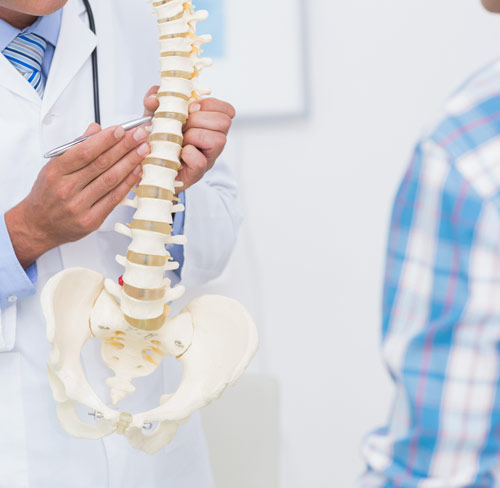Spinal Stenosis Symptoms: Risky To Ignore Them

Spinal Stenosis is a disorder of the spine which causes pain and discomfort. Proper diagnosis and treatment are necessary to prevent further progression and for improving the quality of life. The patient should consult with a spine surgeon in Gurgaon who should be specialized in diagnosing and treating various neuro-spinal problems.
What Is Spinal Stenosis?
Spinal Stenosis is the condition characterized by the narrowing of the passage of the nerve canal through the spine. This results in increased pressure over the spinal canal. The conditions result in constriction of the nerve and nerve roots. In most cases, the condition develops due to osteoarthritis.
Various other causes that may increase the risk of spinal stenosis include slipped discs, degenerative disease, tumor, thickening of ligament and bone spurs or bone overgrowth. Traumatic conditions such as accidents that lead to spinal injuries may also cause stenosis.
The condition may occur at any part of the spine but is most commonly found in the neck, known as cervical stenosis, and lower back, known as lumbar stenosis.
In severe cases of spinal stenosis, where non-invasive treatments fail to provide an optimum reduction in pain and discomfort, the doctor may recommend surgery which results in creating more space for the spinal canal.
Age is the most common risk factor for developing spinal stenosis, however, the other factors which increase the risk include spinal injury and underlying diseases such as scoliosis and genetic diseases.
When untreated, the spinal stenosis may further progress and cause paralysis, numbness, balancing problem, weakness, and incontinence.
What Are The Symptoms Of Spinal Stenosis?
The symptoms of spinal stenosis depend upon the amount of pressure exerted on the nerve or nerve roots due to the narrowing of the spine. Some patients with mild pressure do not experience any symptoms. Following are some of the symptoms of spinal stenosis are:
- Pain that slowly fades away: Pain of spinal stenosis increases with an increased level of activity. So it is, therefore, advised that you should not stretch activity hours. The pain subsides after taking rest for a few minutes. The intensity of pain may vary. Sometimes the pain is quite severe while it is mild or absent on other occasions.
- Pain triggered by changing position: Change in position changes the orientation of the spine. This results in more pressure on the spinal nerves leading to pain. Sometimes the pain is so severe that you have to halt the work. Exercise or other strenuous activities increase the risk of pain. It is also to be noted that spinal stenosis is a progressive condition and the pain worsens over a period. Change to a comfortable position and physical therapy may improve the pain.
- Weakness and problem in balancing: You should never ignore any weakness or balancing problem like these, in most cases, are due to neurological problems. The nervous system controls the activity of muscles and if they are compressed due to the narrowing of the spine, the patient experiences reduced neuronal activity. The tingling sensation is another symptom that should not be ignored.
- Sciatica symptoms: The patient should not ignore any radiating and shooting pain in the legs through the buttocks. These may be due to underlying medical conditions. The patient suffering from spinal stenosis, too, have sciatica-like symptoms. These symptoms include numbness, tingling sensation and radiating pain in the arms and legs.
- Relief in pain when leaned forward: Many patients experience relief in pain when they bend forward. If this happens, there are high chances that the pain is due to spinal stenosis. This is because while bending forward, the space in the spine gets widened and the compression on the nerve gets relieved. It is to be noted that this relief is transient and as the person changes the posture the pain may return. The patient should consult with the spine surgeon in Gurgaon.
Why Should You Do Not Ignore The Symptoms Of Spinal Stenosis?
The person should never ignore the symptoms related to spinal stenosis. The best spinal neurosurgeon should be consulted for diagnosing and treating this condition. Like with many other neurological diseases, spinal stenosis is also a progressive disease and the pressure on the nerve and relative severity of symptoms increases with time. Further, untreated spinal stenosis may lead to various complications including paralysis, poor bowel movement, and urinary incontinence, increased risk of falls due to weakness and balancing problem, and numbness especially on the extremities. In the case of severe spinal stenosis, the patient may experience serious complications known as central cord syndrome.
